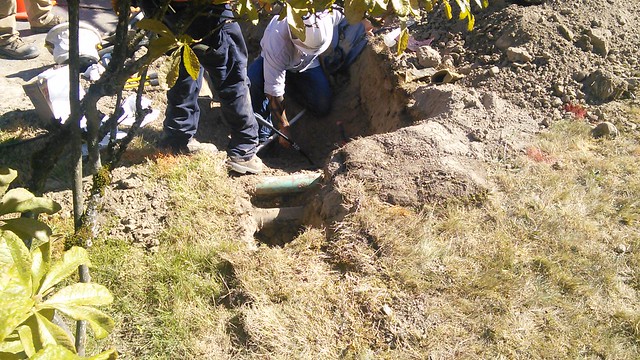To me his concept comes off as the " The dog is brown therefore all brown things are dogs.' type reasoning.

I seriously thought he was better than that.

Hello there,
This reply is really for both you guys.
What you are saying there could be referred to in formal logic as a "non sequitur" and i think that is a good example.
However, we have to realize that the current argument really belongs under the heading of philosophy, and let me state one definition of that word in the way in which i am using it...
Philosophy:
"The study of the fundamental nature of knowledge, reality, and existence, especially when considered as an academic discipline."
What that really means is that we are trying to arrive at conclusions that follow from the observations.
Unfortunately, there are some questions that dont have just one single answer. That's because in our attempt to find one we dont find just one we find two or more, either or which could be correct if not even both of them. The truth lies in a series of rigorous arguments where each point must be clearly defined, and it's not only very hard to do that it's also possible to set up other sets of arguments that lead to somewhat different conclusions. When this happens the debate can go on literally forever because the final answer depends very highly on the application(s).
A counter example here would be that in your statement if we limited the number of dogs in the study group it may actually be true.
But the example i like to give is one of the most controversial: A hole in the ground.
What exactly is a hole in the ground?
When we try to define this we end up with various problems, especially if we dont limit ourselves to a hole in the ground but also allow a hole in anything, anywhere.
We choose a location, and once we remove the earth from the ground in that location we have what we call a 'hole'. But the 'hole' is made of nothing, so how can it be anything? We assign a simple explanation by calling it a noun, but nouns are man made, so is the hole really anything? We can call it a localized lack of earth, but still there is nothing there where the 'hole' is located so how can we say it is anything at all.
It's this kind of argument that can go on forever unless we set up some ground rules, and in this we also have to remember that when we try to call it something,whatever that may be, that is in itself setting up a ground rule which has, as of yet, no context. We have to decide on the interpretation beforehand about what we are going to allow to be called "real". If anything real has to have physical substance in and of itself, then we cant call a 'hole' anything real, but if we allow all nouns to be called real then it doesnt have to be physical.
So philosophical arguments can go on forever unless you set some ground rules because there is no right and wrong unless there are rules to follow or to contradict.



